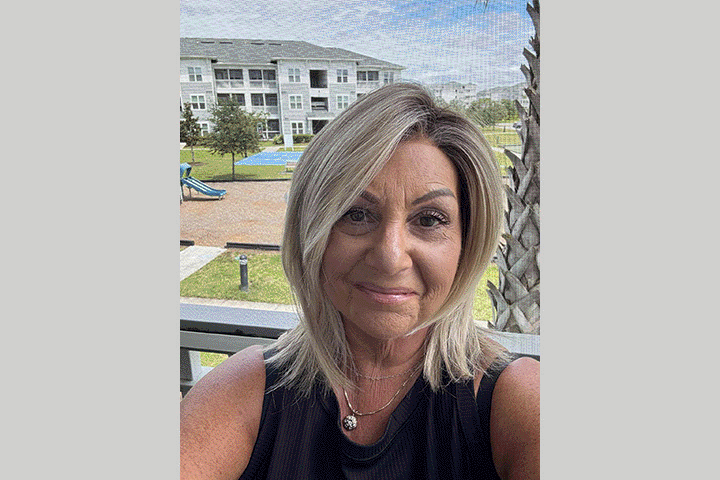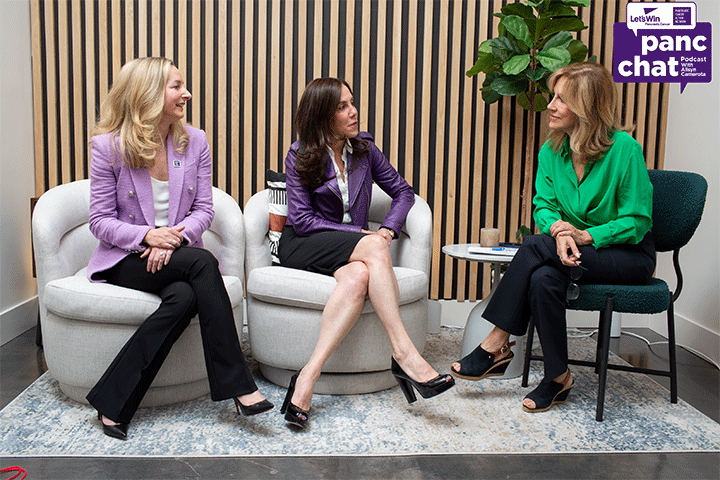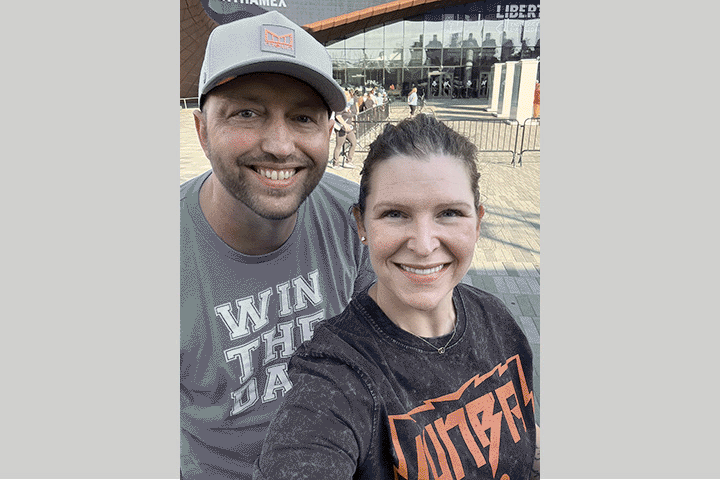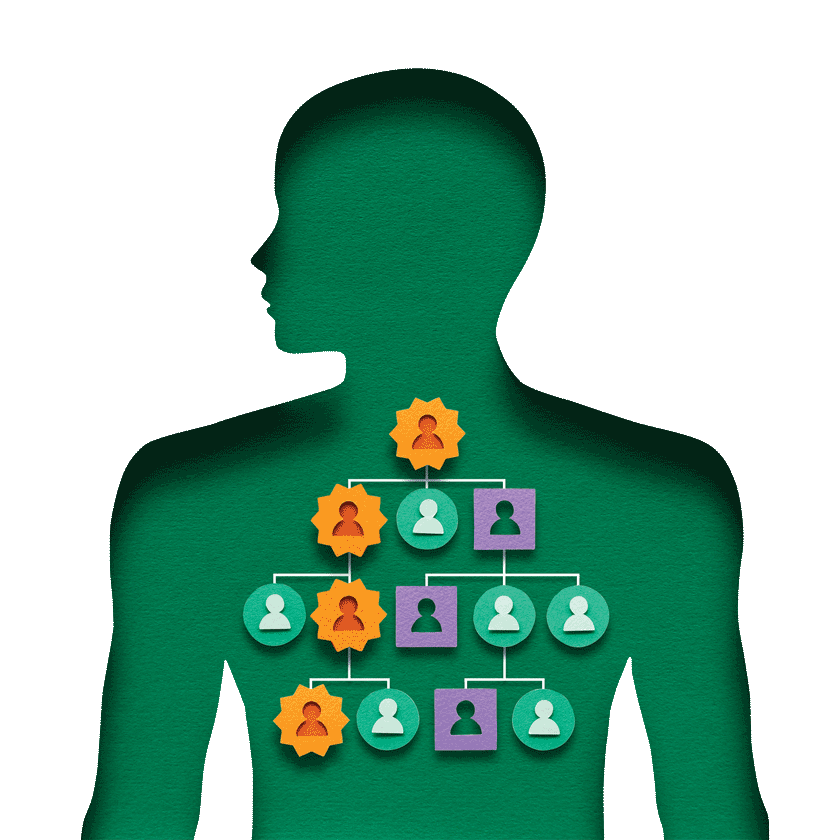Leaning into the Fight: My Battle with Pancreatic Cancer
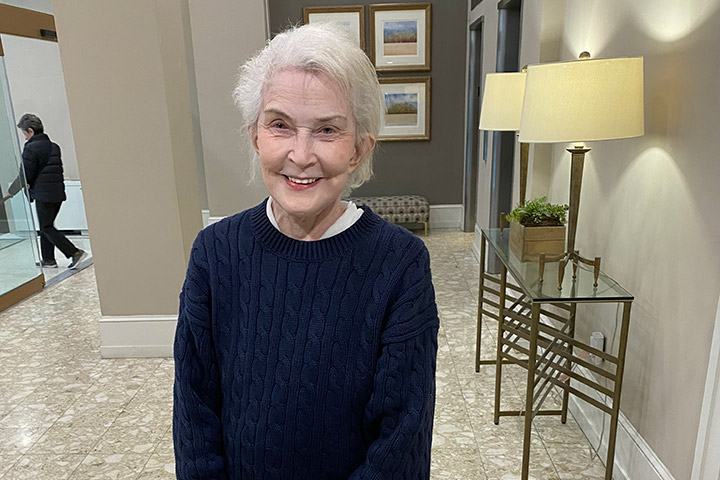
- Family history of pancreatic cancer
- Not assessed as high risk despite family history
- Stage III at diagnosis
- Ongoing treatment including a Whipple, chemotherapy, and radiation
Ever since I learned of my stage III pancreatic cancer diagnosis on December 12, 2021, I wake up every day to my worst nightmare.
I too have pancreatic cancer, just like my mother and grandfather, who both died from it. Sometimes it seems like the hardest part of having pancreatic cancer is knowing, all the time, that you have it.
But while I desperately try to make some sense of this, I’m also finding coping mechanisms to help me get through the biggest fight of my life, as well as lessons that might help others. I told God, I still have work to do here on Earth. I need to live!
Reflection
The diagnosis of my pancreatic cancer came at such a rapid speed, it left my head spinning. One month I received a clean bill of health, despite the presence of a cyst on my pancreas, and was told to report back in a year. Then the very next month I experienced worrisome discomfort and was sent to the hospital by my primary care doctor, where after testing I was diagnosed with stage III pancreatic cancer (the cyst had transformed into cancer). It’s been incredibly difficult to accept that there were warning signs months before my cancer was diagnosed, and I have struggled with letting go of “what ifs” and the focus on mistakes. While no genetic components were found in my germline analysis, we should have paid closer attention to my strong family history of pancreatic cancer.
I think my later exchange with my GI specialist raises critically important issues. He told me there was “no way to predict that a cyst would grow fast or slow . . . it’s not an exact science,” and that his recommendations were, “in accordance with current practice guidelines.” Why are some doctors relying solely on set guidelines without factoring in the specifics of the patient in front of them? Perhaps this was the guideline for an ordinary patient, but I am not an ordinary patient, given my family history of pancreatic cancer. Doctors should be more aggressively proactive when appropriate. While this may not be an “exact science,” how will it ever improve if doctors don’t learn from experience? At what point do guidelines change based on patient outcomes?
He also said that my case “defies explanation.” If my situation isn’t following expected trajectories, what is the mechanism to report that and adjust protocols accordingly? Maybe what they learn from my experience could help others in the future, so they too don’t fall through the cracks.
Lessons
It will bring added meaning to my experience if it leads to changes in protocols and how doctors approach cases like mine, or if it promotes awareness that people should become their own advocate and push for further action if they too find early signs of cancer or if they are at high risk, even if genetic testing doesn’t reveal anything. This is especially important for female patients, as their concerns are still often dismissed as unimportant by the medical establishment.
I know now that my doctor should have ordered an MRI with and without contrast every three months given my risk factors. This would have identified my cancer at a much earlier stage, giving me a better chance at recovery.
I’m blessed now in having a great oncology team led by Dr. Ursina Teitelbaum at the Abramson Cancer Center at Penn Medicine (Philadephia, Pennsylvania). I’m in my third year of a day-to-day fight going through multiple treatments, starting with Whipple surgery, followed by months of chemotherapy, and then a six-week course of daily radiation. I was then in remission, but when they saw a spot on my liver, I had more radiation and then a course of chemo. The spot on the liver is gone, but now the cancer has spread and I’m currently in another course of chemo meds. I’ve had the following chemo treatments so far: FOLFIRINOX, FOLFOX, gemcitabine, Abraxane, and capecitabine. I want to take advantage of every option to fight this.
Support
Support from loved ones has been absolutely essential to maintain my strength, reduce self-blame, and increase my optimism during this battle. There are particular people who stand out for me, including friends who cook for me to keep my energy up, a dear friend who has become my “cancer coach” based on his own experience, and my “spiritual coach” who prays for me and sends me scriptures and songs to build me up and give me strength.
Sometimes support is just simple acts of kindness, like a friend who came over to vacuum and clean my kitchen. Or the people at the fruit truck where I get a smoothie every day who always ask how I am. Or the young woman at the coffee shop who gave me a necklace when she heard what I was going through.
I have so much left to do in this life, and I intend to stick around to do it all! I hope in the process I can also help others to advocate with their doctors to get diagnosed as early as possible, and cultivate the strength to make it through their own battles.
